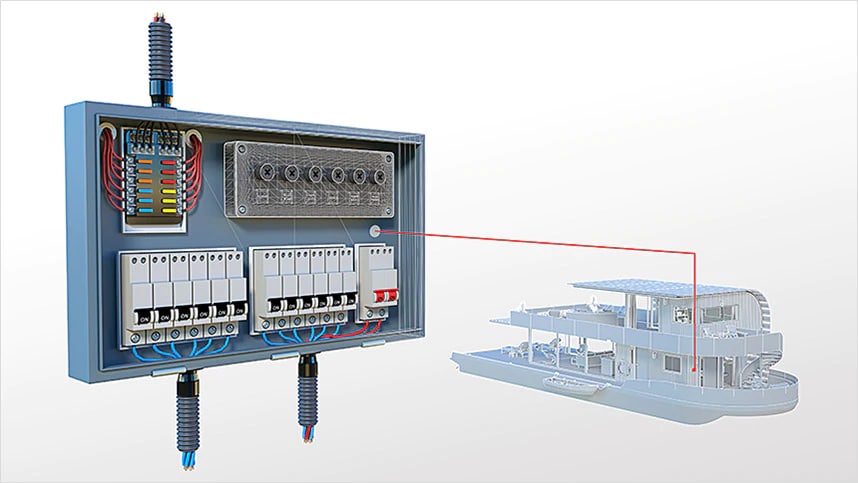Accurate Electrical Load Calculation Services for Your Project
Accurate Electrical Load Calculation Services for Your Project
Blog Article
Specialist Electric Design Providers for Safe and Reliable Equipments
The duty of professional electric design services is significantly extremely important in making certain the security and efficiency of modern-day systems that develop the backbone of structure facilities. As we examine these facets, the influence on future advancements in electrical systems warrants cautious consideration.
Relevance of Electric Design
Effective electrical design offers as the foundation of a structure's framework, guaranteeing the risk-free and reliable distribution of electrical power. A well-structured electrical design adds to the total power efficiency of a facility, which can lead to significant cost savings over time.
Furthermore, it fits the growing demand for advanced technologies and clever systems that enhance customer experience and operational performance - industrial electrical design. By incorporating energy-efficient lights, trusted source of power, and ideal circuit layouts, electrical design helps with the seamless operation of home appliances and equipment vital to daily activities
Additionally, detailed electric design thinks about future scalability, enabling for very easy upgrades and adjustments as innovation develops. This forward-thinking method not only optimizes the current system yet additionally shields the investment made in the framework. Basically, precise interest to electric design is vital for achieving an effective, sustainable, and secure environment in any kind of building or remodelling undertaking.
Key Elements of Design Provider
A comprehensive electric design solution encompasses numerous crucial components that make certain the efficient and dependable implementation of electric systems. At the structure is the evaluation of project demands, which includes understanding customer specifications, regulative standards, and environmental factors to consider. This preliminary stage is vital for customizing the design to satisfy specific requirements.
Next, precise lots computations are executed to identify the electric demands of the system. This includes reviewing the power requirements of all linked tools and guaranteeing that the design can accommodate prospective future developments.
The selection of suitable products and tools is another necessary part. This includes selecting high-quality components that follow sector standards and fit the job's financial restraints.
Furthermore, in-depth schematic layouts and layouts are established to picture the system's architecture, helping with clear interaction amongst stakeholders.
Lastly, a complete testimonial and validation process is vital to ensure that the design meets security requirements and operational effectiveness prior to execution. By incorporating these components, electrical design services produce durable systems that work properly and securely within their desired environments.
Advantages of Specialist Proficiency
Involving specialist experience in electric design solutions brings substantial advantages that boost task results. Professionals have detailed understanding of the most current approaches, devices, and technologies, making sure that designs are not just innovative however efficient and additionally functional. Their experience permits the identification of possible issues early in the design procedure, minimizing expensive alterations and hold-ups.
Furthermore, expert electric designers are proficient at maximizing system efficiency while adhering to finest methods (industrial electrical design). They use advanced simulation and modeling methods to anticipate system actions under numerous conditions, resulting in more trustworthy and reliable styles. This optimization equates to power financial savings and boosted operational efficiency, which are essential in today's sustainability-focused setting
Cooperation is one more vital benefit; skilled developers work very closely with various other specialists-- contractors, engineers, and designers-- to make certain that all facets of the project straighten flawlessly. This interdisciplinary approach fosters efficient interaction and ultimately leads to a useful and cohesive electrical system.
Regulatory Conformity Factors To Consider

Experts in electrical design have to have a detailed understanding of these laws, making sure that all elements satisfy necessary safety and security and performance requirements. Regular updates and amendments to laws require continuous education and recognition within the area. Non-compliance can result in expensive hold-ups, redesigns, and lawful consequences, adversely influencing job timelines and budget plans.
Including conformity factors to consider from the outset of a task enables designers to identify prospective problems early, assisting in smoother inspections and approvals. Involving experienced electrical design solutions ensures that all governing requirements are fulfilled, thus lessening risks and promoting a safer setting for both drivers and users. Eventually, the emphasis on regulative conformity fosters count on and integrity, vital components in the successful shipment of electric design projects.
Future Fads in Electric Design

Another arising fad is the emphasis on renewable power sources. As the demand for lasting solutions grows, electric design will progressively include solar, wind, and energy storage space systems. This shift not just straightens with worldwide sustainability objectives yet likewise boosts energy durability.
In addition, the rise of electric automobiles (EVs) necessitates a reconsidering of electric infrastructure, prompting layouts that accommodate EV charging stations in property and business spaces. Innovations in energy-efficient elements and products will continue to play an essential function in decreasing power intake and decreasing environmental impact.
Last but not least, the fostering of electronic twins in electric design enables improved simulation and modeling, allowing designers to visualize and optimize systems prior to implementation. These patterns jointly show a transformative change toward more smart, lasting, and efficient electric design practices.
Verdict
To conclude, professional electrical design services play a crucial function in guaranteeing the safety and performance of building framework. By focusing on extensive assessments, precise load estimations, and the use of top quality products, these services promote compliance with governing standards and minimize dangers linked with electrical failings. The combination of sustainable methods and innovative technologies boosts system performance and dependability, inevitably adding to a more resilient and energy-efficient developed atmosphere.
The duty of expert electrical design solutions is significantly paramount in making sure the safety and security and performance of modern systems that form the backbone of structure framework. Effective electrical design offers as the foundation of a structure's facilities, making certain the effective and risk-free circulation of electric power.A thorough electric design solution encompasses numerous key components that make sure the dependable and efficient application of electric systems. Electrical systems should conform with local, state, and nationwide codes, consisting of the National Electric Code (NEC) in the United States, which establishes the requirement for safe electrical design.
As the need for sustainable services grows, electric design will progressively integrate solar, wind, and energy storage space systems.
Report this page